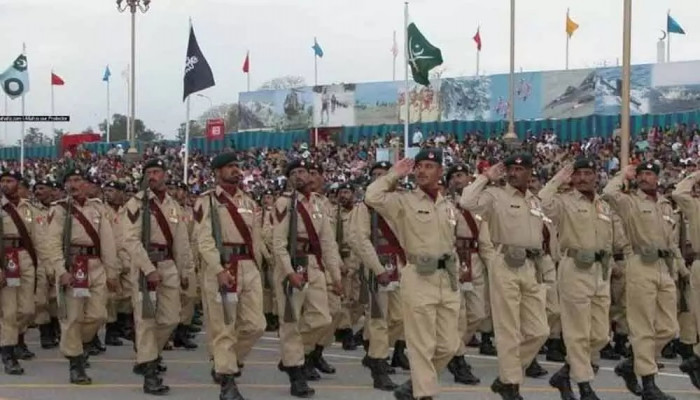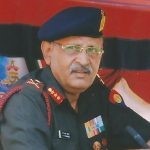The First Half Army: 74 years of Pakistan's first capitulation to Indian Army
- In Military & Strategic Affairs
- 11:11 AM, Oct 23, 2021
- LT GEN P R SHANKAR (Retd)
Pakistan Army exudes a hubris of fighting capability and martial tradition. However, Stephen Cohen once described it as the finest army in the world which never won a war. The fact that it has lost all wars with the Indian Army and that too at a time and place of its choosing underscores this statement. Pakistan Army has kept its nation at war forever. This formidable force has constantly failed Pakistan. This journey of failure started on 22 October 1947 when it invaded J&K to wrest the state from India. An analysis of the 1947 war and events of that time indicates that the character and traits it showed then have surfaced and resurfaced consistently over seven decades in all conflicts thereafter.
Pakistan Army now boasts of defeating USSR and USA in Afghanistan through proxy means. The concept of fomenting armed insurrection by using non-state actors as state proxies started in 1947 when it armed and trained tribesmen to infiltrate and invade Kashmir. Interestingly these tribesmen were commanded by Pakistani Officers. The practice of officering proxies, terrorists and mercenaries is now par for the course and was reported even in the Panjshir Valley recently. It was in 1947 that Pakistan started the practice of unofficially going to war while officially denying it. This was also the start of using terror through ideologically motivated mercenaries to prosecute war. The 1947 war was the first hybrid war which Pakistan fought.
Ever since then, hybrid proxy wars have been the mainstay of Pakistan’s grand strategy. Examine the 1965 Indo-Pak War, the Kashmir insurgency from 1988 to date, Kargil War of 1999 and war against USSR and USA. There is an established pattern of heavy reliance and usage of non-state actors. It is a different matter that seven decades of this strategy has neither liberated Kashmir nor tamed Afghanistan. On the other hand, it weakened the state, its recognised political processes, militarized society and gave birth to domestic terrorism which is now an existential threat to Pakistan itself.
In 1947, the invaders had Srinagar at their mercy. However, the tribesmen stopped to carry out loot, pillage and rape. They massacred Kashmiris mercilessly without even sparing children or women. This diverted the Pakistani Army from its aim. The offensive petered out on the outskirts of Srinagar. It gave time for India to get its act together and push back the invaders. Analysis indicates that had there been some discipline, stronger command and control and good leadership, Kashmir would have been part of Pakistan. This has been a recurring feature of the Pakistanis Army - poor leadership and discipline. Poor military leadership and discipline led to Pakistan losing half the nation and the creation of Bangladesh in 1971. Poor military leadership was to resurface during Kargil war, in which the Pakistanis even refused to recognise those who made the supreme sacrifice for the country.
The 1947 war also saw Pakistan adopt ‘offensive-defence’ as its national strategic concept. There was no room for defence in their militarised thinking. Their offensive outlook which commenced on 22 Oct 1947 brought them often to the cusp of success and victory. However, each and every time when victory was within Pakistan’s grasp, it failed. The military and national leadership simply did not have the vision to finish what they started.
Pakistan’s senior military leaders have consistently failed their lower-level commanders, rank and file with poorly conceived military adventures. Whenever the chips were down, the Pakistani nation and its senior leaders never had the courage to stand by their men. There is nothing worse for soldiers than their leaders abandoning or disowning them. The ultimate result has been that starting from 1947, the Pakistani Army has always seized the initiative, made great inroads, put the opposition on the ropes and finally lost. This has been the recurring feature of every conflict that the Pakistani Army has been in.
Pakistan and its Army have been brilliant first-half players who inevitably lose in the second half. At a national level, Pakistan had an out and out offensive outlook for the first half of its existence. Till the late ’80s, ‘Offensive’ remained Pakistan Army’s major strategic concept. Thereafter the Army took its toll on the State to debilitate it. In the second half of its existence, Pakistan has been only on the defensive.
A very interesting and curious aspect of the 1947 operations was the diversion of Pashtun nationalism away from Pakistan to India. Pashtun nationalism was in the air with Khan Abdul Ghaffar Khan seeking a Pathanistan. Pakistan’s North-West frontiers were restive and the Durand Line was not acceptable to Pashtuns either side. Hence the solution to the problem was that the Pashtun tribesmen were motivated, trained and armed to invade Kashmir. Their nationalism was funnelled into Kashmir.
Later, Zia ul Haq replicated this strategy when he created the mujahideen, who were largely Pashtun, to fight against the Soviets in Afghanistan. He diverted Pashtun nationalism into Afghanistan. The modern-day version of this diversification is Taliban. The strategy has worked so far but has now run its course. There is no space left where this phenomenon can be exported. The TTP and PTM are now focussing within to create space for Pashtun aspirations. They threaten to destabilise Pakistan. The chickens have come home to roost.
In August 1947, Pakistan signed a standstill agreement with Maharaja Hari Singh, the erstwhile ruler of Jammu and Kashmir. On 22 Oct it invaded Kashmir. It was perfidy of the highest order. Since 1972, they have broken the Shimla Agreement in letter and spirit repeatedly as they kept sponsoring terrorism in Kashmir. They have also reneged on all understandings with USA to engineer the defeat of their ally in Afghanistan. Reneging on promises, understanding and agreements has been a signature feature of Pakistan since 1947 to date.
In the ultimate analysis, armed forces are protectors of the nations. In the case of the Pakistani Army, the opposite has been true. Far from protecting the nation, it lost half of it in 1971. Even after 1971, the Army has continued its disastrous wars and battles irrespective of the fact that Pakistan has been beggared. It remains to be seen as to when the Pakistan Army will lose the other half of the nation.
Image source: The Hans India
Disclaimer: The opinions expressed within this article are the personal opinions of the author. MyIndMakers is not responsible for the accuracy, completeness, suitability, or validity of any information on this article. All information is provided on an as-is basis. The information, facts or opinions appearing in the article do not reflect the views of MyindMakers and it does not assume any responsibility or liability for the same.







Comments